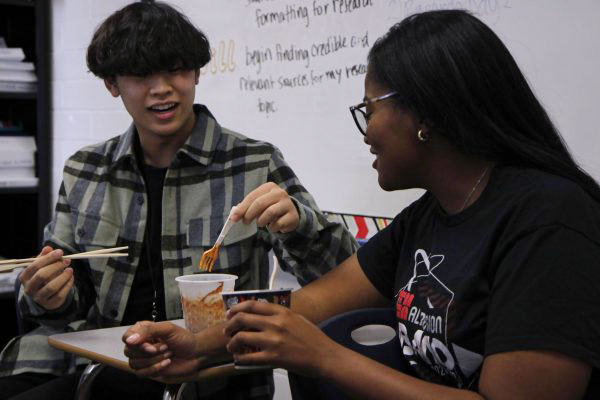Burned tongues and noodles, a recipe for cultural education? As senior Mia Nguyen passes out spicy ramen noodles to Asian Student Union members, she smiles with the knowledge that she could educate others on Asian cuisine all while having fun.
Several clubs were added this past school year including the Asian Student Union. Started by seniors Mia Nguyen and Samantha Opalach, they became motivated by the sudden surge of anti-Asian hate crimes during 2021 and felt the club was necessary to educate the student body.
“It’s a way for people in general to get together to learn about each other’s cultures. There are not a lot of Asian students [at Legacy] already so it’s good for people to learn more about each other and it’s like a bonding experience,” Nguyen said.
Other clubs were added in the past school years: the Gay-Straight Alliance, Science National Honor Society, Brothers and Sisters in Christ, Model UN and the Latin Student Union. The clubs all aim to encourage students to broaden their knowledge about different communities or subjects. For Nguyen, these new clubs are necessary.
“[The new clubs are] important because of current events. It is one of our jobs to make everyone feel included,” Nguyen said. “I feel like people should know more about what’s going on and see everyone’s opinions about [different issues]. Even if we all are predominantly Asian [in the Asian Student Union] it’s important to know a difference of opinions [within the Asian community].”
The Asian Student Union hosted a ramen eating contest in order to garner attention and potential new members. The event brought several new faces and was able to end in a discussion about Lunar New Year. Nguyen hopes that the club will be able to continue to bring students together in learning more about each other.
“I hope we can facilitate more social interactions between people of different ethnicities, different cultures together and people with interests in Asian culture together,” Nguyen said. “It’s not just for Asian people, it’s a way to bring awareness into issues that affect Asian-Americans.”





